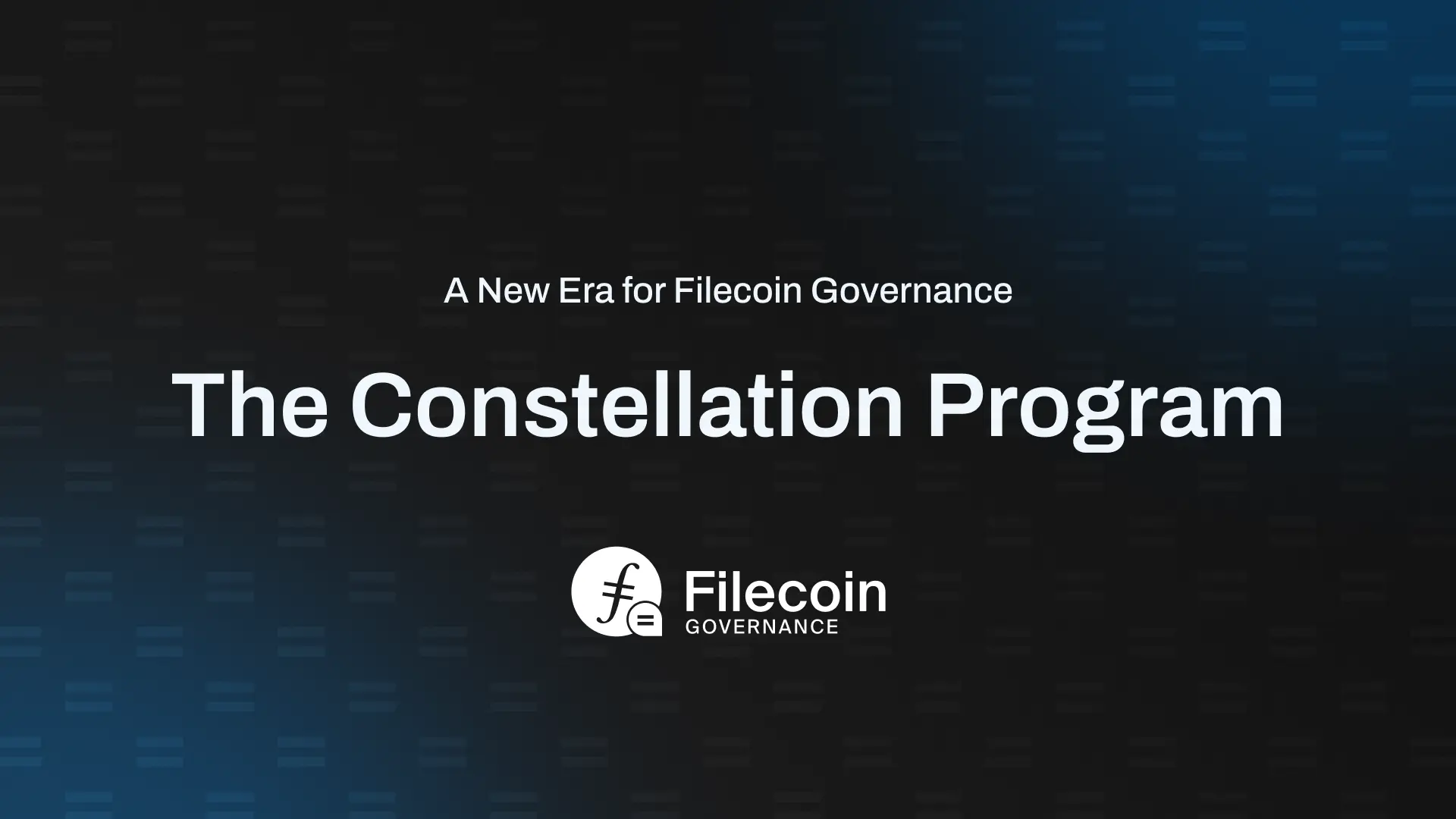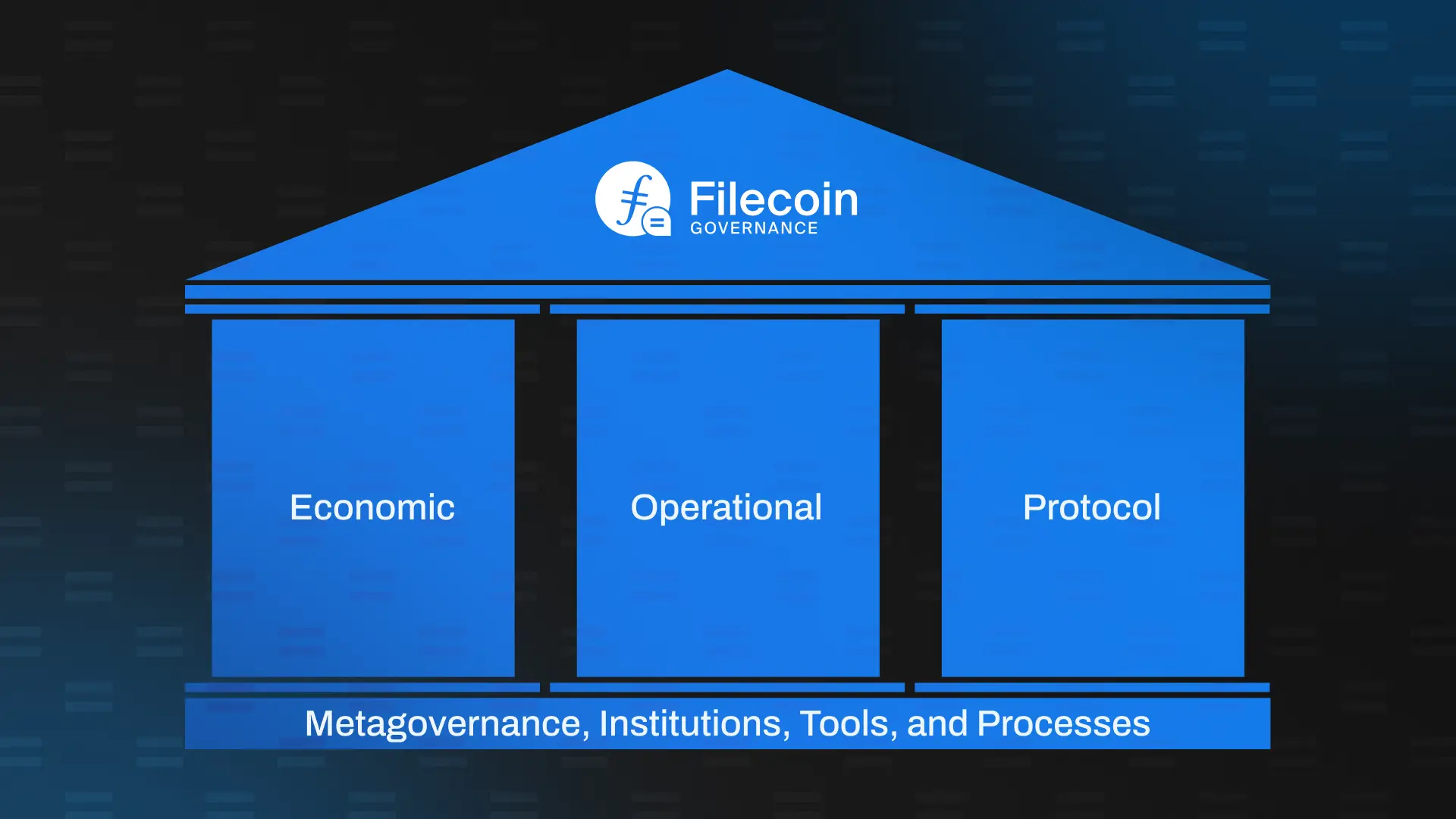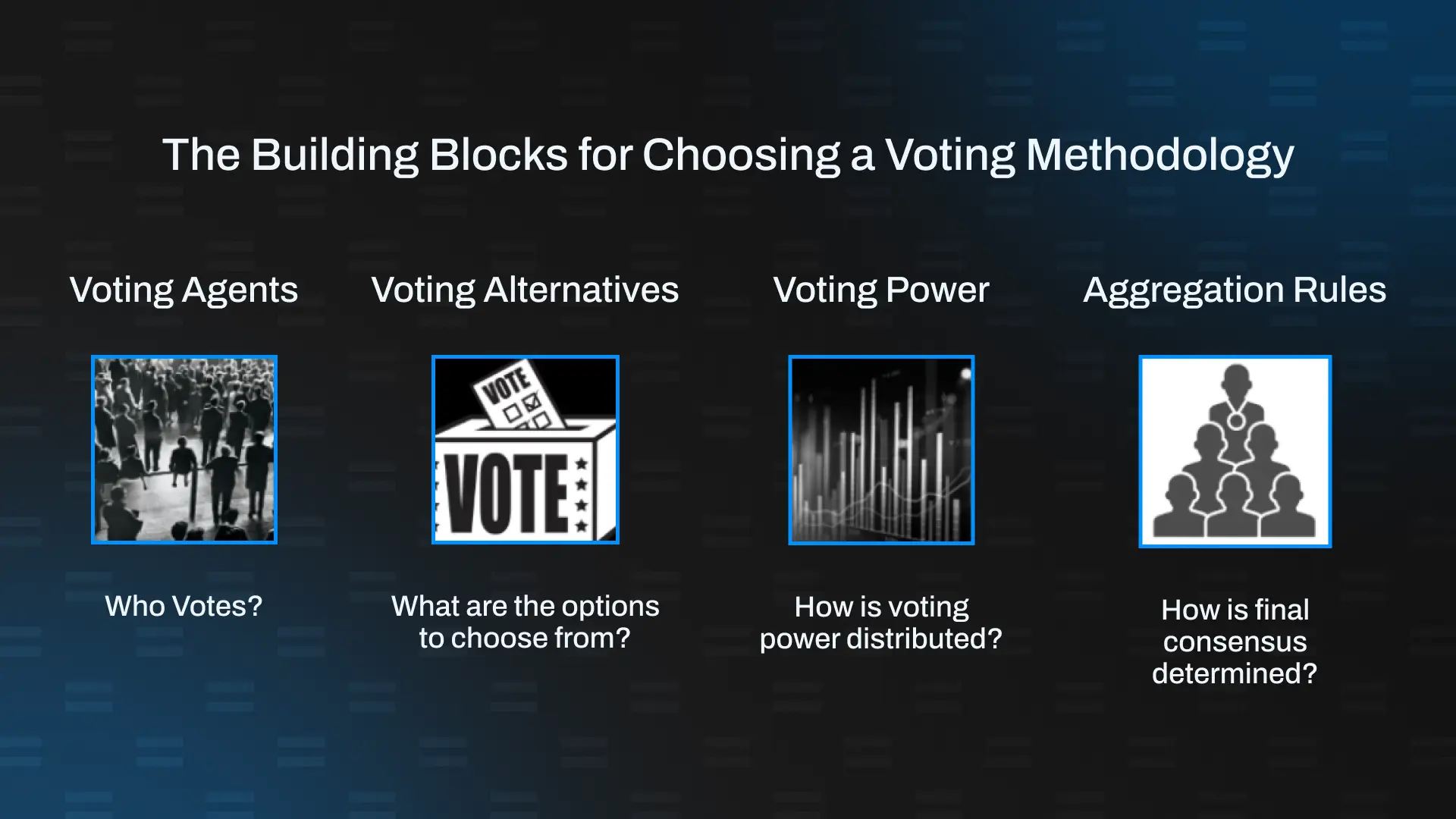Help Us Shape a New Era of Filecoin Governance

On October 15, the Filecoin network celebrated five years since mainnet launch, followed by two days of FIL Dev Summit Virtual, a gathering of developers, builders, and engaged community members focused on advancing the core protocol and shaping the future of the Filecoin network.
During FDS-7 Virtual, Filecoin Foundation’s governance team shared a deep dive into network governance: where it started, where it’s headed, and what comes next. This blog post recaps that presentation and sets the stage for continued conversations at FIL Dev Summit 7 @ DevConnect happening in Buenos Aires from November 13–15, 2025.
A Foundation Built on Decentralized Proposals
From the beginning, Filecoin governance has been rooted in a decentralized, proposal-driven process inspired by Ethereum, with Filecoin Improvement Proposals (FIPs) at the center of how the network evolves.
FIPs have been the mechanism through which the network coordinates technical upgrades, helping define how the protocol evolves. Core developers review proposals for feasibility, ensuring they can be safely implemented before FIPs are implemented across a diverse set of node implementations. This process has powered milestones like the launch of the Filecoin Virtual Machine (FVM), new storage incentives, and countless technical improvements.
But as the Filecoin network has grown, so too have the demands on its governance system.
The Limits of Technical-First Governance
What began as a primarily technical protocol is now a full -fledged decentralized economy that must respond to macroeconomic trends; support a growing ecosystem of builders, clients, and services; and govern public goods funding at scale.
This evolution has exposed limitations in our current governance model. We’ve seen an increasing number of proposals that go beyond protocol mechanics like changes to incentive structures, funding for shared infrastructure, or ecosystem-wide coordination.
And while other blockchain protocols rely on mining-based governance or validator voting to make these decisions, that approach doesn’t map well to Filecoin. The Filecoin network is made up of a diverse group of stakeholders. Developers, storage providers, clients, ecosystem partners, and token holders each bring different needs, goals, and levels of participation. The Filecoin network needs a governance model that recognizes and supports that complexity.
Listening, Learning, and Clearing the Backlog
Over the past several months, we have been in a listening phase: gathering community feedback, interviewing stakeholders, and researching models from other decentralized protocols. This process has helped FF’s governance team develop a clearer understanding of where improvements can be made and where opportunities lie:
- Ambiguity around roles and responsibilities is hindering effective decision-making; establishing clear guidance will ensure confidence and accountability.
- Some stakeholders have voiced concerns about transparency and inclusion, underscoring the need to strengthen trust by ensuring their perspectives are meaningfully reflected in the governance process.
- FIP prioritization and recognition for completed work should be made more consistent and visible.
- The FIP lifecycle would benefit from clearer structure and communication.
- Many contributors are managing heavy workloads, leaving limited time for reviewing and prioritizing proposals.
A clear theme has emerged: governance roles need clearer expectations, stronger guidelines, and better tools. Based on a survey FF conducted in APAC, we found that nearly 60% of the ecosystem isn't actively participating in governance today, but 43% of those want Filecoin governance to remain flexible and experimental. This input is guiding our next steps as we work toward a more effective, inclusive, and transparent governance framework. Watch the full ‘Current State Assessment’ from FDS-7 Virtual here.
Introducing the Constellation Program
To meet this moment, FF’s governance team launched the Constellation Program, a structured, community-driven initiative to reform and modernize Filecoin governance.
Constellation is built on the idea that good governance doesn’t emerge by accident. It’s a deliberate, iterative process that must be designed, tested, and aligned with the needs of the ecosystem. The program includes three phases:
- Phase 1 - Discovery: Mapping pain points, identifying key stakeholders, and studying governance models from other decentralized protocols.
- Phase 2 - Operating Model Design: Defining how governance will function, including the scope of what’s being governed, the decision-making methodology, and the roles of participating stakeholders.
- Phase 3 - Implementation Planning: Starting at FIL Dev Summit 7, we’ll co-develop a roadmap and identify the tools and resources that best reflect the needs of the Filecoin community.
The Three Pillars of Filecoin Governance
After completing the discovery phase, the governance team has moved into Phase 2, which centers on operating model design. As part of that, we're introducing a three-pillar governance framework that captures the full scope of what is being governed. Picture the governance framework as the architecture of a resilient building. Each pillar is a vital structural element—all working together to support the entire system. The roof represents the values and vision, while the foundation comprises the institutions, processes, and rules that feed into overall stability.

Economic Governance: Focused on funding, incentives, and sustainability, spanning storage and retrieval economics to the use of the network’s treasury. This includes support for public goods funding (PGF) that doesn’t fit neatly into commercial models, like shared developer tools and infrastructure.
Operational Governance: Focused on turning decisions into action, this pillar ensures that governance processes are clearly scoped, inclusive, and reliably executed, with clear roles, responsibilities, and decision lifecycle management.
Protocol Governance: Focused on the rules and logic of the network itself. This is where decisions about consensus, FIPs, and technical upgrades live. Protocol governance also includes the onchain functioning of voting mechanisms and direct execution of governance outcomes.
Looking Ahead: FDS-7 and Beyond
This work will culminate in hands-on working sessions at FIL Dev Summit 7, where the community will come together to co-design the next phase of Filecoin’s governance reform, including exploring the right methodologies for voting in the Filecoin network.

For each of these dimensions, we will workshop how to tailor a decision-making methodology to the Filecoin network’s needs. For more details on the questions we’ll explore in Argentina, check out this clip for a preview of the planned activities at FDS-7. Tune in here to explore our benchmarking of decision-making and weighted voting approaches and dig deeper into FF’s research on voting models.
Help Us Build the Future of Governance
All of this sets the stage for FIL Dev Summit 7, where the community will come together to collaborate on the opportunities that will define Filecoin’s future. FF’s governance team will host sessions to explore Filecoin’s future governance model. From defining voting rights and economic stewardship to empowering the role of the community in decision-making, as a community, we’ll be designing a system that supports Filecoin's next decade of growth.
The Filecoin ecosystem is entering a new era. As we prepare for major technical and economic changes, including the launch of the Filecoin Onchain Cloud, it’s time to match that innovation with governance systems that are just as forward-looking.
If you care about Filecoin’s mission and future, now is the time to get involved.
-
Join upcoming governance discussions on GitHub
-
Attend FIL Dev Summit 7 @ DevConnect in Buenos Aires from November 13 - 15
-
Share feedback on the Constellation Program at governance@fil.org